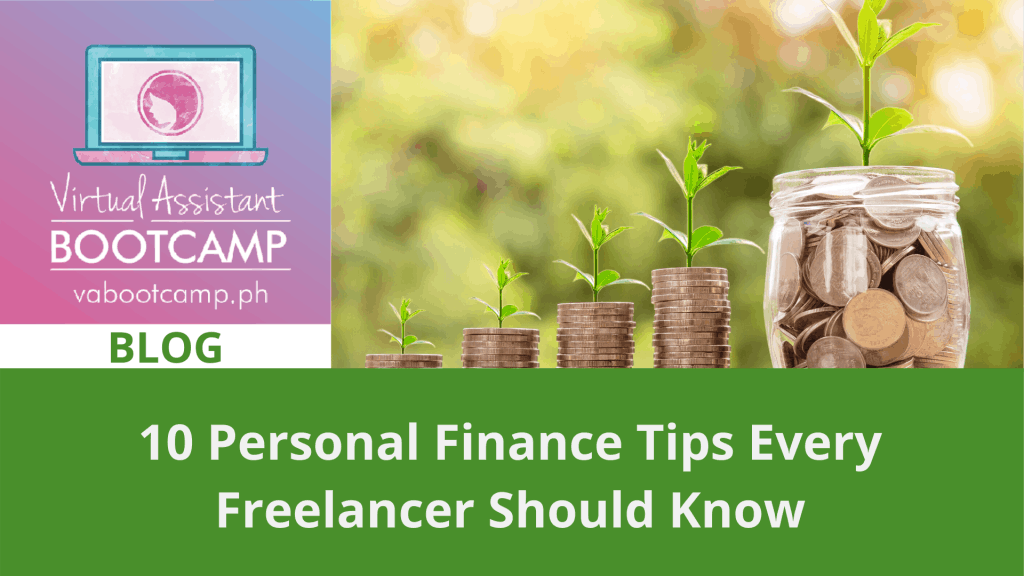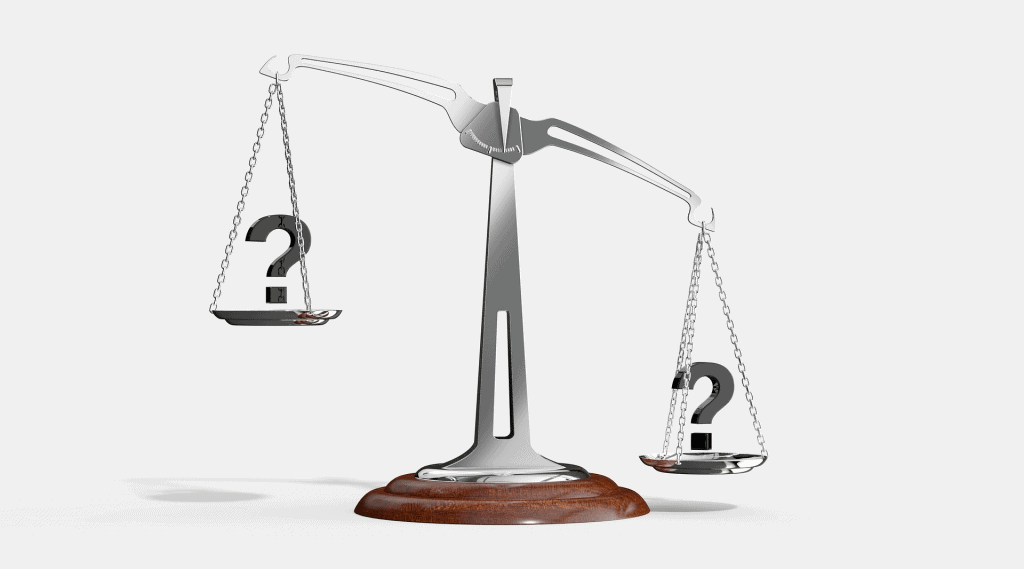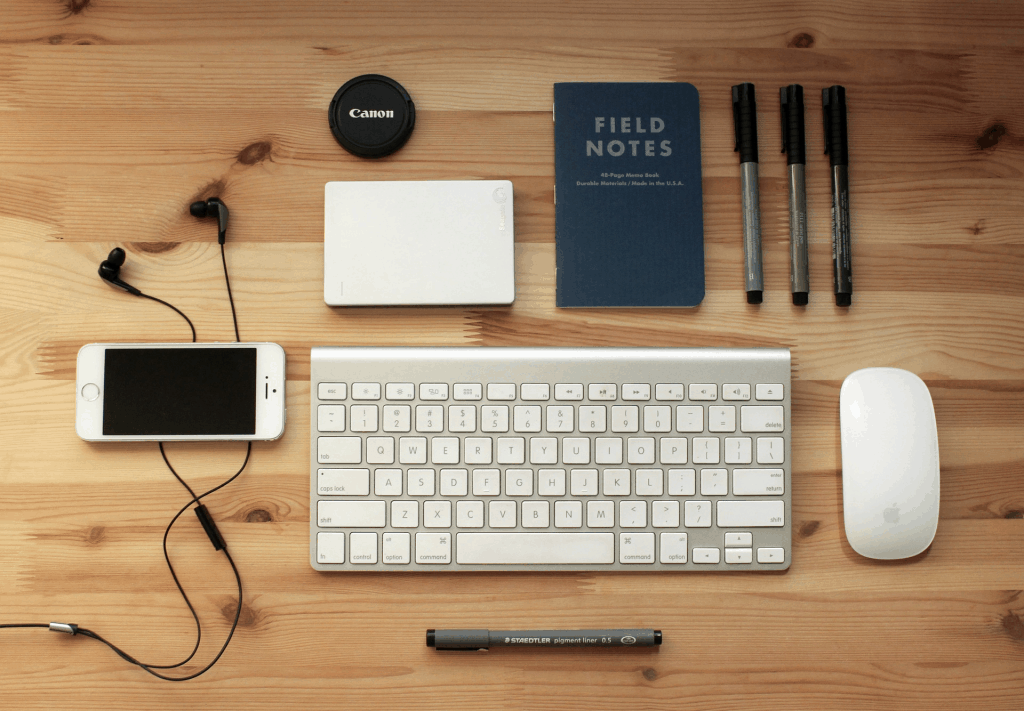Menu

Getting out of the rat race and becoming a full-time freelancer can be quite liberating. You are officially your own boss having full control over your time and earnings.
To ensure your desired level of success, it’s also good to be aware of certain challenges happening in the industry so you can learn from them.
No, I’m not talking about work challenges. I’m pointing at financial matters.
A study in America found that 70% of the freelancers don’t have any long-term savings. There are 2 main reasons why this is harder for this sector:
· Unpredictable income
· Extra costs that go with freelancing
Combine this with the fact that 77% of Filipinos still don’t have bank accounts and you’ll see the clear picture.
However, you don’t have to be part of the negative statistics.
In this article, you’ll learn 10 personal finance tips every freelancer should know! Stick until the end so you won’t miss anything important.

When you increase your income, it’s quite tempting to spend more. After all, you deserve to pamper yourself after many hours of hustling.
At first glance, there’s nothing wrong with this mindset. However, if you truly want to set yourself up to success, you need to spend less than what you earn. Why?
Let’s take John as an example. He was born from a poor province. By a stroke of luck, he became a famous boxer. He has no formal education and zero financial literacy. What do you think would happen?
He might upgrade his lifestyle too fast and burn all his money. If he doesn’t know the concept of spending less than what's being earned, he’s doomed.
The same thing can happen with freelancers who suddenly earn double or triple their past salaries when they were in the corporate world.
If you are blessed with work today, value your money. Every peso should be accounted for.

Don’t make up the definition of your needs based on your wants as I did.
The first time I earned money through freelancing, I thought that I needed the most advanced gadgets and equipment. What I ended up doing was buying a bunch of things I don't even use that often such as speakers.
Yes, they allowed me to listen to music loudly. But other than that, I don’t use them a lot since I can’t focus on writing with music on.
I realized that I could’ve just used that P1,500 to save or buy a life insurance policy (which I have now, fortunately).

When I received my pay for a book that I wrote for a client, the first thing I bought was a smartphone worth P13,500. Why didn’t I buy it on an installment basis like the majority of Filipinos, you might ask?
First, paying it in cash meant that I didn’t have to pay interest, which is an unnecessary burden. Then, I also knew that I could genuinely afford that phone because I had the capacity to pay for it upfront.
The same mindset should be applied to your purchases, especially big ones.

By using cash and debit cards when paying, we are aware of the actual amount of money we have left.
The problem with credit is, it tricks us into thinking we have way more money than we have at our disposal.
It might be tempting to get a credit card when we start earning more. But if you have a bad history with debts, it may become a trap.
Don’t be tempted to get one if you’re unsure that you can handle it. Even if you’re offered by your bank, don’t think about it as a benefit.
It’s safer for you to stick to cash and debit cards as much as possible.

Coming up with a budget should be one of your priorities as a freelancer.
It's tempting to think that you can handle your finances well without it. But the truth is that having one can save you from financial problems, especially because your income may vary from time to time.
Here are some of the advantages of having a budget system:
· Gives you control over your money
· Makes you aware of your savings, investments, and debts
· Enables you to easily pinpoint money problems
· Allows you to have a financial roadmap for the long-term
You can go old school using excel sheet or use budget apps.

You may have more money now as a freelancer than when you worked in a corporate job, but that doesn’t mean you should not be mindful of your spending.
Buying expensive things such as drones or consoles may seem irresistible.
But what exactly do you need them for?
It would be wise to buy assets that produce additional income streams.
Here are some examples:
· Stocks: These are also called equity, representing a percentage of company ownership. You can grow your money through dividends or by buying and selling them when their prices appreciate.
· UITFs: Unit Investment Trust Fund (UITF) is a pool of investments funded by different investors. Fund managers manage these funds so you don't have to actively monitor them.
· Property Rentals: These can be houses, apartments, or condominium units that you own and offer for rental.
To help you decide whether or not something is worth buying, always ask yourself: “Will it bring more income or expense?”
If you’re doubtful about your judgment, do your own research or reach out to financial experts.

Have you ever felt this? You bought a brand new TV set and proudly mounted it in your living room.
Yes, there's that feeling of happiness but do you notice that it fades away only after a few weeks?
Eventually, the TV blends into your other appliances and it doesn't excite you anymore.
Compare the experience with your latest trip. Chances are great, it has given you prolonged satisfaction and joy. Remembering it makes you light up instantly.
That is because, unlike objects, experiences tend to become part of our identity.
Do you need to travel outside the country? Not necessarily. A simple, inexpensive trip within the city with your family can be enough to put you in good spirits.
But if you've been working hard and you have a good amount of cash to spare, why not book a ticket and enjoy the fruits of your labor?
It’s important to take a break every now and then!

An emergency fund is different from your savings. This is your saving’s savings.
Ideally, you want to have an emergency fund of at least 6-9 months’ worth of your monthly expenses.
This will ensure that you can survive even if you lose all your clients.
Also, this will allow you to prepare for emergencies such as sickness, accidents, or pandemics such as Covid-19.
You should build your emergency fund before your savings or investments. You never know when an emergency may happen so it’s best to be prepared.
Lastly, it should be kept on a separate bank account so you won’t mix it with your daily expenses.

It doesn’t matter how much you earn but how much money you save.
Some people are earning six figures, yet they’re always wondering where their money goes at the end of the month.
Some earn minimum wage but they are able to save some for rainy days.
So, what gives?
It all comes down to proper money management which entails having a budget system in place and faithfully following it.
Reinforce it with discipline and you’ll have a successful financial life ahead of you.

Having one source of income can be scary.
I’ve only realized this recently.
When I was still a rookie freelancer, I thought I had everything figured out.
I had multiple clients, steady pay, and was able to live day by day without any worries.
However, I experienced a month where I suddenly didn’t have a SINGLE client. Either they didn’t have projects for me or they’ve moved on; it didn’t matter.
What mattered was that I was scared. I didn’t know how I could help my family pay for our bills and I didn’t have any savings at all.
This is when I realized the importance of generating multiple income streams.
Having multiple clients isn’t enough. You could lose them all in the blink of an eye. Instead, look for additional sources around you.
If you’re a freelancer, chances are that you have many skills. Polish and use them to generate multiple income streams.
I started a blog in hopes that it can give me passive income in the future.
Aside from that, I’m exploring other online ventures such as publishing eBooks, dropshipping, and making money through Facebook pages.
The point is that, don’t be too comfortable with what you have today.
Don’t make the same mistake that most Filipinos fall into - relying on a single source of income.
Final Thoughts
I hope you’ve learned a lot from my top 10 personal finance tips for freelancers!
Just remember that just because you’re earning a lot now doesn’t mean that you’ll automatically achieve financial freedom with very little effort.
Completely being oblivious of sound money management strategies, can forcibly send you back to the rat race, just barely getting by. And chances are great, that’s the last thing you want.
Not yet a freelancer? Sign up here to the FREE VIRTUAL ASSISTANT COURSE to get started.